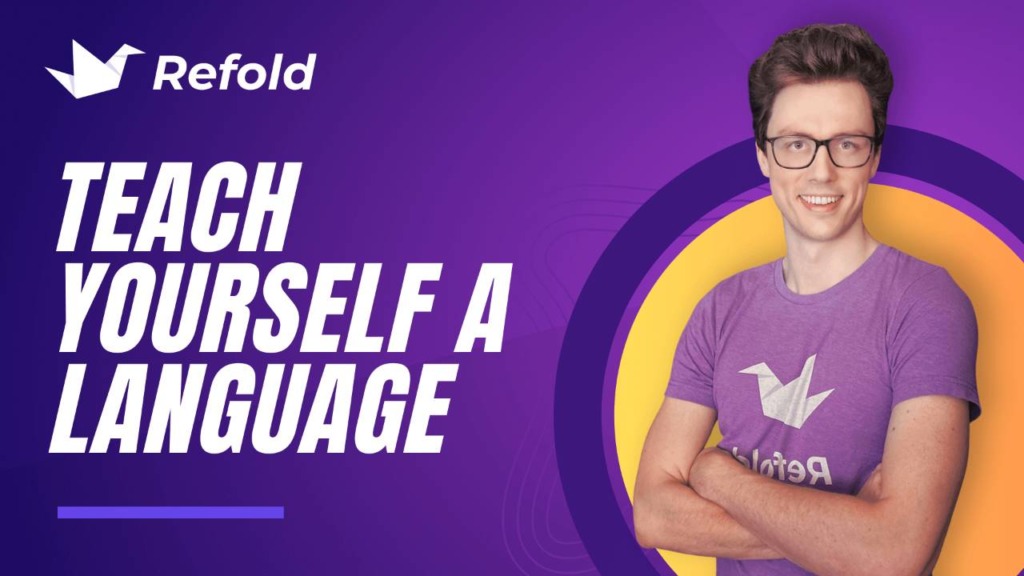It’s possible to jump straight into immersion and watch target language (TL) shows without subtitles. This would be slow and frustrating, but you’d eventually start to pick up common words and build your comprehension.
To make this process more fun, you can accelerate your comprehension by studying the common vocabulary you will see in your immersion.
Use a spaced-repetition system (SRS) to learn the 1,500 most frequently occurring words in your TL.
Studies1, 2 estimate that in English 2000 words account for roughly 94% of casual, daily speech. With 5000 words, that number jumps to nearly 99%. Different studies analyze different sources, and come up with different numbers, but they all fall roughly into the same ranges.
While the percentages vary from language to language, memorizing 1,500 words will give you a solid foundation.
Knowing 1,500 words doesn’t automatically translate to comprehension so don’t be surprised if you still don’t understand. You may understand 90% of the individual words in a conversation, but comprehending the full meaning of a conversation requires immersing and putting that knowledge to use.
How to Get Started
There are two approaches to using an SRS to learn common words.
- Use a pre-made vocabulary deck.
- Find a frequency list and create your own cards.
A pre-made deck is the quickest way to get started, but it can be hard to find high-quality decks. Most decks are created through software and have not been curated for efficient learning. They often include words that aren’t relevant for jumpstarting immersion, as well as poor translations and incorrect or missing audio.
Making your own cards is more up-front work, but it can be worth it if you can’t find a well-curated deck.
Either way works, so just pick a direction and go.
Keep in mind, 1,500 is not some magic number you have to abide by. If you only do 1,000, that’s fine. Remember: learning words is study, not acquisition. You just want to build a base of words that will accelerate your comprehension of immersion content. You are not looking for perfection, you just want enough. Enough words that are common enough that you remember well enough.
Comprehension, Not Production
The goal of studying vocabulary is to recognize and understand those words in your immersion. To practice recognition, you only need to study cards with TL on the front. Cards with TL on the front are called “comprehension” or “recognition” cards.
In traditional study, you are asked to remember TL words off the top of your head or as a translation from your NL. This type of card is called a “production” or “recall” card. You should not do this type of studying. If you find a flashcard deck with production or recall cards, feel free to delete them.
By the time you need to produce the language in Stage 3, the words will be embedded in your subconscious. You won’t need to memorize them to produce them on command.
Study Tips
Delete Cards
If you just can’t seem to remember a word, delete it. If you just don’t like a card, delete it.
Also, if the word is basically the same as in your native language (aka loanwords and cognates), delete it. Your brain learns these words effortlessly from context once you start recognizing how they’re pronounced in your TL.
Start Slow
As noted in 1C SRS Best Practices, it’s easy to get overwhelmed by the SRS if you go at it aggressively. If you’ve never used an SRS before we recommend starting with just 5 cards per day until you build a habit of daily review. After a few weeks, increase this to 10 cards per day.
At our recommended rate of 10 cards per day, 1500 words will take five months. However, it likely won’t take this long because you’ll also be learning some of these words through immersion. If you already know a word, then suspend or delete the card.
If you are willing to invest heavily in active study, you can increase to an aggressive rate of 20 words per day. Be warned, after two weeks, this will yield about 140 reviews per day.
Level Up
You DO NOT need to finish the most common 1,500 words before moving on to Stage 2.
When you enter Stage 2, you will create a new deck and start sentence mining from your immersion content. You can study both decks side-by-side or you can drop this starter deck in favor of sentence mining. The choice is yours.
Footnotes:
1: “Vocabulary coverage according to spoken discourse context”, Adolphs and Schmitt, 2004
2: “How Large a Vocabulary Is Needed For Reading and Listening?”, Nation, 2006





